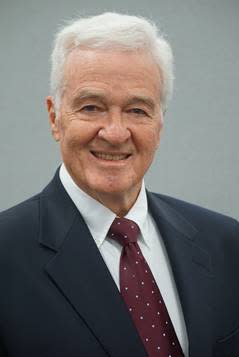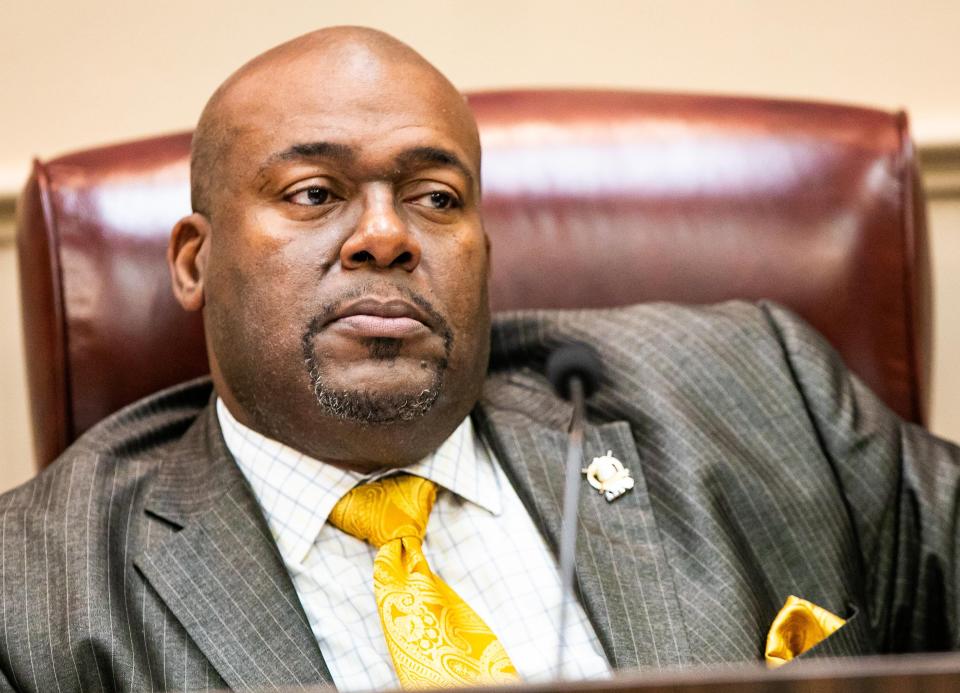Ocala/Marion education: How much leeway should students have using cellphones at school?
Should students be able to use cellphones more at school, even as part of classroom instruction? Or should they be banned completely because of a few students who bully classmates and share videos taken at school on social media?
That was the subject of a Marion County School Board work session on Thursday. The ultimate question for board members is whether it is time to revert back to the days before cellphones and ban them during the school day.
Though no decision was made, board members see the issue in different ways, with the oldest board member Don Browning, 79, suggesting that cellphones should be used in every class as an educational tool.
Cellphone in school? Should you let your kids have a cellphone in school?
Grades falling: Marion schools: 48.7% of students in grades 6-12 had at least one D or F last semester
Social media at school: TikTok #deviouslicks challenge leads to arrest of 9 Marion students for vandalism
Cellphones are not bad, "like cars aren't bad," he said. Poor decisions of a few shouldn't eliminate the technology for all students, Browning said. Students use them to research at a teacher's request, board Chairman Eric Cummings said.
Other board members, as well as some principals, believe cellphones should be powered off and not seen throughout the day. The student should be focused on learning, not texting with a helicopter parent or checking likes on social media.
The belief is that with the emergence of TikTok, Instagram and Snapchat, students are now using these platforms to disparage classmates, film teachers or escalate tensions within a school. Shutting them off will also promote more personal interaction, some board members say.
Current policy gives principals leeway on cellphone usage
Danielle Livengood, director of curriculum, instruction & digital learning, gave the school board a break down of the current cell phone policy.
She said "students can be in possession of a cellphone, but they cannot be visible or activated during regular school hours." What gives principals leeway is that "the exception is with administrative approval," Livengood noted.
Students are allowed to use the devices on district transportation, as long as they also use headphones or earbuds. The policy does not allow for unauthorized recording or photographing of employees, volunteers and or students.
"When a student violates this policy, phones can be confiscated," she noted.
The difference between the two levels is repetitive behavior. A student usually gets a verbal waning for the first offense, and either another verbal warning or written warning for a second offense.
"Usually on the first offense a student's phone is confiscated and then the parent will have to come at the end of the school day, or the next day, to pick up the phone."
The procedure is similar for a second offense. "And then on the third offense the infraction moves to insubordination," she noted. Insubordination can lead to suspension from school or expulsion.
Chad Frazier, a district area superintendent, said there were 14 level-one cellphone infractions and 31 level-two cell phone infractions at elementary schools during the 2021-22 school year, through early April.
"In secondary, our total level-one cellphone infractions were 59, and level-two cell phone infractions were 259," Frazier noted. "The totals between elementary and secondary equals 895 cellphone infractions for 2021-22."
He said there were 29,363 total infractions of all cases in Marion County Public Schools. Of all those infractions, 3% involved cellphones.
Two principals share differing guidance
Frazier introduced two principals who have differing opinions on how they choose to implement district cellphone policy. And both are in compliance with district rules based on the policy wording.
Dion Gary, principal at Belleview Middle School, says that cellphones are not allowed to be on or visible at all for his sixth-, seventh- and eighth-graders.
"The policy states that cellphones should not be seen or heard," Gary pointed out. "And so that means a student can have a cellphone in their book bag, turned off for safety purposes, and that's an appropriate way to use cell phones."
As to the safety issue, the theory is that a cellphone can make a noise that could attract a gunman if one ever targeted a school.
Gary said the biggest complaint from parents is that they want to know their child is safe and can be reach at a moment's notice. "I can contact your student within 45 seconds," Gary said he often tells parents.
Chris Carlisle, principal of Vanguard High School, said students must turn off cellphones in class, unless the teacher give an OK to utilize web-based applications or websites.
"We follow the code of conduct on our campus," Carlisle said. "Our exception is they can use their cell phone with teacher permission."
Carlisle noted that it is "an expectation of our parents that they're able to communicate with their child during the school day. So we do allow our students to use them during transitions and lunches."
Some students say cell phones at school are valuable
Frazier said the district interviewed several high school students and found that they see the possible policy change as unfair because only a few violate the policy.
"They (students) wanted me to make sure that I voiced the opinion that there are a lot of students that are doing the right things, and aren't misusing cellphones," Frazier noted.
Here are some of the reason students gave for productive use of cellphones: safety, communicate with teachers on assignments, using educational applications and using phones for updated meeting times to school clubs, just to name a few.
"One of our students reported that there are many students throughout our high schools utilizing cellphones to track their blood sugar levels due to medical issues that they have," Frazier noted.
Students also pointed out that that those peers posting videos during school day use social media "burner accounts" with fake emails that can't be traced back to them. Board Vice-Chairwoman Allison Campbell was skeptical of the validity of the survey.
"Thank you Mr. Frazier for that, but I question it a bit," she noted. "I just want to say that probably the students chosen for a survey are probably not the students causing the issues."
Board members spilt over student cellphone use
Melanie Slaughter, a parent and regular speaker at board meetings, told the district that they must think long and hard about how they adjust the policy in the future. If students must turn phones off, so should teachers to set the proper example.
"You're gonna have a major problem if you ask kids not to be on a phone, or not to bring it out, and their teacher is sitting there during their test looking on the phone, checking emails," Slaughter noted.
Browning believes that cell phones are a part of life.

"I don't think of them as criminal or even think of them as negative," Browning said, adding the technology should be embraced. "We're talking education. If you're gonna go to Harvard, you're gonna go to work for FedEx, or you're gonna do whatever, you've got to be the sharpest person in the room."
Campbell said the education applications students use on their phones can also be accessed on the Google Chromebooks that the district has on hand for students. Campbell actually asked Carlisle about his school's student interaction at lunch.
"When you're in the cafeteria, how many students do you see just off by themselves on a cellphone, or in a circle and they are all on cellphones, as opposed to actually having dialogue, a communication-building relationship?" Campbell noted.
Carlisle said he does see many students interacting. Campbell said the district needs to make sure that "we're not contributing to students addictions and cellphones and social media usage is addictive."
Board member Thrower agreed, stating cellphones have become an obsession. She has seen firsthand how much time that discipline deans spend investigating school problems that sprung up on a social media app.
"We survived just fine without cellphones and social media for a very, very, very long time," Thrower noted. "I think about how much more time would be gained in an instructional day if kids were not constantly checking their phones."

Cummings said the board members all have "different perspectives on how to deal with cell phones at the school level."
"If you can use it to engage students for educational purposes, there is a place for it," he noted. "There is a place for safety purposes, as well."
However, Cummings also noted that he also has "seen videos of kids fighting on buses and doing different things on campus, using their cellphone in ways that completely violates this policy."
Superintendent Diane Gullett said the code of student conduct is reviewed each year and the committee will look to see if tweaks can be made.
In the end, there was no official changes made to the policy and principals each have their own policies that fit into the framework of the district policy as a whole. Every school is different and the policy can be used to best suit those populations.
Joe Callahan can be reached at (352) 817-1750 or at joe.callahan@starbanner.com. Follow him on Twitter @JoeOcalaNews.
This article originally appeared on Ocala Star-Banner: Marion County school leaders disagree over student cellphone use

